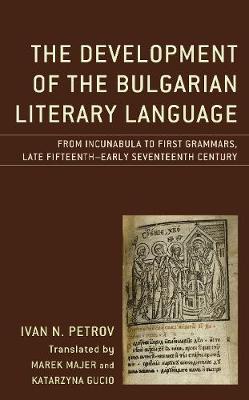Studies in Slavic, Baltic, and Eastern European Languages and Cultures
1 total work
Ivan N. Petrov's The Development of the Bulgarian Literary Language: From Incunabula to First Grammars, Late Fifteenth - Early Seventeenth Century examines the history of the first printed Cyrillic books and their role in the development of the Bulgarian literary language. In the literary culture of the Southern Slavs, especially the Bulgarians, the period that began at the end of the fifteenth century and covered the sixteenth and seventeenth centuries is often seen as a foreshadowing of the pre-national era of modern times. In particular, this relates to the gradual replacement of the centuries-old manuscript tradition with the Cyrillic printed book that developed at that time, which--after the incunabula of Krakow and Montenegro--was published in such centers as Targoviste, Prague, Venice, Serbian monasteries, Vilnius, as well as Moscow, Zabludow, Lviv, Ostroh and many others. Petrov shows how the study of old Slavic prints is closely linked to the description of the processes that determined the emergence of modern literary languages in the Slavia Orthodoxa area, including the influence of the liturgical Church Slavonic language shared by the Orthodox Slavs, which was increasingly standardized and codified at that time. This book analyzes the complex and multidimensional issues of that period from the perspective of a language historian.
